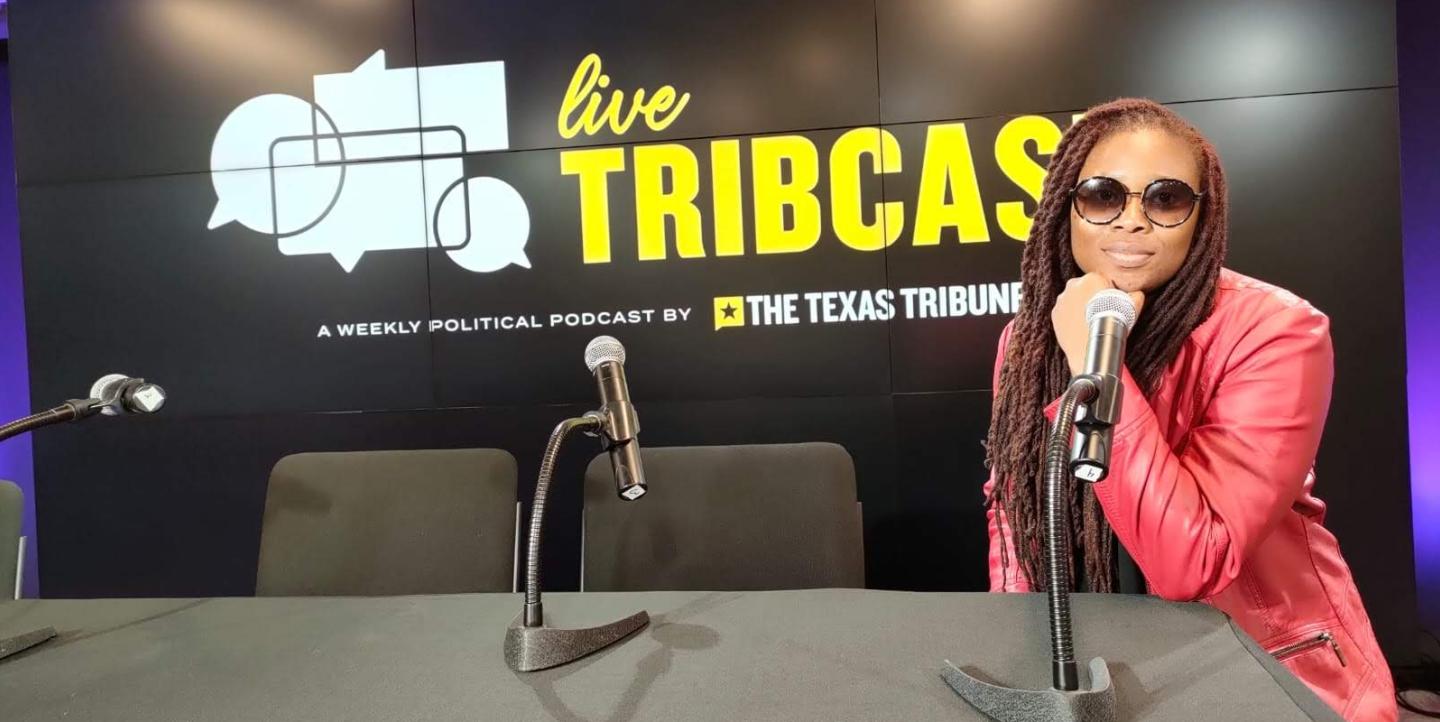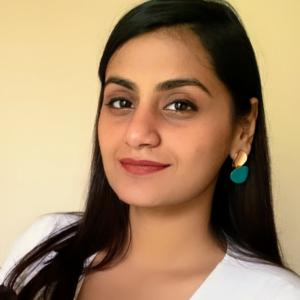An electrical engineer by training, Nigerian journalist Nelly Kalu launched her first journalistic project, a college talk show, while studying at Federal Polytechnic Nekede. She ran a show, called The Horizon, for two years before shutting it down to focus on her studies.
Kalu later took part in a year of mandatory service with the National Youth Service Corps in Jigawa, northern Nigeria, an experience that inspired her to start a career in radio, she said. During a program internship at NYSC, she learned how to use a mic and read the radio board, skills she was able to then leverage to land her first job as a radio presenter in Lagos with City FM 105.1 in 2010.
Later as a radio broadcaster for NigeriaInfo 99.3 FM, Kalu presented a show that examined the Asaba Massacre during the Nigerian Civil War, in which federal troops were accused of killing hundreds of civilians in the town of Asaba. “There've been generations of Nigerians born like me who never saw the war, who only heard about it. Are we ready to talk about that history so we can't repeat it?” said Kalu.
During the show, Kalu recalled how she was interrupted and handed a paper warning that if she spoke “one more word” about massacres, the station would be shut down.
“My radio station didn't have my back,” she said. “They never defended me. They removed me quickly, kept me off the air for about two days. I was fired and rehired. That lack of support killed something in me, and I left.”
This experience led her to move from radio to fact-checking. “It was no longer enough just talking about issues. Journalism was evolving. You could no longer just trust what you googled online. It could really literally be fake news,” said Kalu.
She has since worked as a Dubawa fact-checking fellow with Premium Times Center for Investigative Journalism, an investigative fellow with the Institute for War & Peace Reporting, and as a fact-checker for Africa Check.
Kalu turned to product development following fellowships she took part in with the ICFJ LEAP News Innovation Lab and World Press Institute, respectively.
I spoke to Kalu about her journey from working as a TV and radio broadcaster to fact-checking and product development, as well as the role of AI in disinformation.
Could you describe your journey from working in radio and TV to combating disinformation?
In 2018, I did a course with RNTC, a media training center where I studied social campaigns and how to map my audience, map my content to my audience persona, etc. Those things really excited me. In 2019, I was working with TV, but the same disaffection I was having for radio started for TV.
It killed me that what mattered the most on TV was if my red lipstick matched my dreadlocks. I wanted to say things and be a really capable journalist. In 2020, when COVID hit, I realized I couldn't be in the studio.
I applied to [West African fact-checking platform] Dubawa, and I learned how to train for six months as a fact checker. I learned about disinformation, misinformation, fact checking, and attended every course in every program. The fellowship would make us actually write fact checks and disinformation investigations. There was a lot to investigate between COVID and EndSARS protests – a series of mass protests against police brutality in Nigeria.
I realized, this isn't going to end here. People were talking about product initiatives, and were beginning to talk about AI. Conferences were happening everywhere. People were talking about collaborative journalism, solutions journalism. All of these things were springing up for me, for the first time between 2020 and 2023.
Could you tell us about a disinformation-related project that you’re particularly proud of?
In 2021, I did a vast investigation and project into the influence of evangelical pentecostal leaders in Nigeria on the choices of Nigerians towards the COVID vaccine: basically, the spread of the misinformation, where in essence the pastors themselves were major influencers on their congregation. Every person who was part of these congregations was hesitant towards the vaccine.
Through my investigation, I found out that the pastors themselves had influencers themselves who were, as it turns out, evangelical Pentecostal pastors in the United States of America. I think I'm still quite proud of that.
Have you used AI in your work? What do you think of it?
I think every journalist uses AI in one form or the other, whether we recognize it or not. But my concern with AI is the limits. The other day I was using Pinpoint from Google to transcribe audio for me, and I basically had to edit the entire audio because it couldn't get Nigerian accents.
[I thought, if] I was pinpointing myself, what was the point of Pinpoint?
AI does help a freelancer like me to edit. But if you use it too much, it edits out your voice. I think the more we use these things journalistically, they learn to truly assist us as we mean for them to.
I think we need to cover AI the way we cover climate, and the way we cover politics and economics and everything else. For once, we can be ahead of something rather than catching up with it.
How have you used IJNet to help your career?
It was through the IJNet newsletter that I found out about the ICFJ LEAP News Innovation Lab - Solutions Challenge. It was through this initiative that we built a product which is actually still on.
It wasn't just an idea, we're building the prototype and it will be soon out for testing. It's called Media Inlet, an engagement tool.
We [the team behind Media Inlet] are a team of three journalists, all freelancers. We're from different countries – Peru, Serbia and Nigeria – and we're still working on this thing, fixing the bugs, developing it. Sooner or later we [will] have our tests concluded and that [will] be a product.
What are your major takeaways after venturing into different formats of news?
In 2022, I joined the World Press Institute as a fellow. I met with newsrooms in seven U.S. cities, from New York to Los Angeles. We talked about business initiatives in newsrooms [which asked], why was news dying?
Those insights taught me that I can be a journalist in a news product space and I can be a journalist in the disinformation space, but I will always be a journalist.
If we don't elevate, innovate and evaluate journalism as journalists, and people come from the outside to do it for us, we lose the core of journalism itself. We need to treat journalism as some kind of intersectional space where all the beats fuse into one, and all the disciplines fuse into one. Otherwise you will have business ventures that die, or journalists that don't understand the business, or developments that happen without the core ethics and integrity of journalism.
Photo courtesy of Nelly Kalu.


